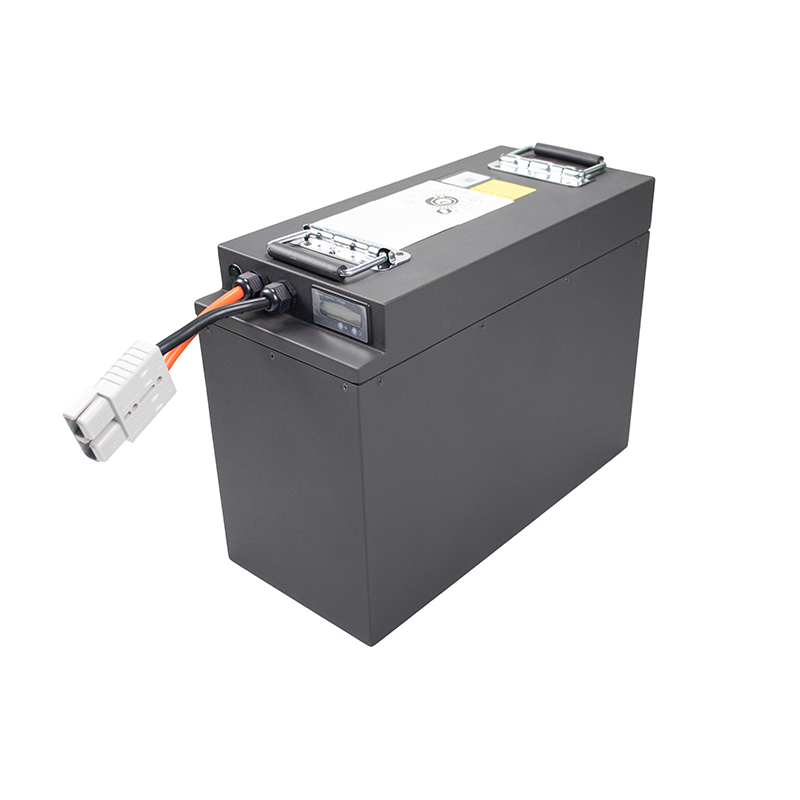Unlocking Efficiency: The Advantages of Lithium Batteries for Forklifts
Unlocking Efficiency: The Advantages of Lithium Batteries for Forklifts
Introduction to Lithium Batteries in Forklifts
In the fast-evolving world of material handling, **lithium batteries** have emerged as a game-changer, particularly for forklifts. Their revolutionary design and superior performance characteristics are transforming how businesses manage their logistics and warehousing operati
2025-07-07

Unlocking Efficiency: The Advantages of Lithium Batteries for Forklifts
Introduction to Lithium Batteries in Forklifts
In the fast-evolving world of material handling, **lithium batteries** have emerged as a game-changer, particularly for forklifts. Their revolutionary design and superior performance characteristics are transforming how businesses manage their logistics and warehousing operations. Understanding the benefits of lithium batteries can help organizations make informed decisions that enhance efficiency and reduce costs.
What Are Lithium Batteries?
Lithium batteries are rechargeable power sources known for their high energy density and long life span. Unlike traditional lead-acid batteries, lithium-ion technology utilizes lithium cobalt oxide or lithium iron phosphate as cathode materials, leading to enhanced performance and safety.
Key Characteristics of Lithium Batteries
1. **Energy Density**: Lithium batteries have a higher energy density compared to traditional batteries, meaning they can store more energy in a smaller footprint.
2. **Longevity**: They typically have a lifespan of over 5,000 charge cycles, significantly outlasting lead-acid alternatives.
3. **Lightweight Design**: Lithium batteries are lighter, which can enhance forklift maneuverability.
4. **Fast Charging Capability**: They can be charged rapidly, often in just a couple of hours, allowing for less downtime.
5. **Low Maintenance**: Lithium batteries require minimal maintenance compared to their lead-acid counterparts.
The Operational Advantages of Lithium Batteries for Forklifts
Switching to lithium batteries in forklifts offers numerous operational advantages that can significantly impact productivity and efficiency.
1. Increased Productivity
Lithium batteries enable forklifts to operate longer without downtime. Since they can be charged quickly and used for longer periods, businesses experience increased productivity, allowing more items to be moved in less time.
Reduced Charging Times
The rapid charging capabilities mean that forklifts do not need to be out of service for extended periods. Operators can quickly charge the batteries during breaks or shifts, further maximizing overall operational time.
2. Cost Efficiency
While the initial investment for lithium batteries can be higher, the long-term savings make them a wise choice.
Lower Energy Costs
Lithium batteries are more energy-efficient, leading to lower electricity costs. This is especially beneficial for businesses operating large fleets of forklifts.
Minimized Replacement Costs
With a lifespan significantly longer than lead-acid batteries, companies will find they spend less on replacements and maintenance over time.
3. Enhanced Safety Features
Safety is a crucial concern in warehouse environments. Lithium batteries contribute to safer operations.
Reduced Risk of Hazardous Spills
Lithium batteries do not contain corrosive substances that can leak, reducing the risk of hazardous spills that can occur with lead-acid batteries.
Built-in Safety Mechanisms
Most lithium batteries come with built-in safety features, such as overcharge protection, preventing overheating and ensuring safe operation.
Environmental Benefits of Lithium Batteries
In an era where sustainability is paramount, lithium batteries present several environmental advantages.
1. Lower Carbon Footprint
Switching to lithium batteries can significantly reduce a company's carbon footprint. Their efficiency means less energy is consumed over time, contributing to sustainability efforts.
2. Recycling Potential
Lithium batteries can be recycled, reducing waste and the environmental impacts associated with battery disposal. Many manufacturers have established programs to facilitate battery recycling.
Challenges and Considerations of Lithium Batteries
While lithium batteries offer numerous benefits, there are considerations businesses must keep in mind.
1. Initial Investment Cost
The initial cost of lithium batteries is higher than traditional lead-acid batteries. Companies should weigh this against the long-term savings they will experience.
2. Compatibility and Infrastructure**
Businesses must ensure their existing forklift infrastructure and equipment are compatible with lithium battery technology. This may involve additional investments in charging stations or equipment.
How to Transition to Lithium Batteries
Transitioning to lithium batteries can be a strategic process.
1. Assess Your Needs
Evaluate your current operations to determine how many forklifts will be converted and the expected usage patterns.
2. Engage with Professionals
Consult with battery specialists to identify the best lithium battery options that fit your specific requirements.
3. Implement a Phased Approach
Consider rolling out lithium batteries in phases to manage costs and adapt your operations accordingly.
FAQs about Lithium Batteries for Forklifts
1. How long do lithium batteries last in forklifts?
Lithium batteries typically last over 5,000 charge cycles, far exceeding the lifespan of traditional lead-acid batteries.
2. Can lithium batteries be charged during a shift?
Yes, lithium batteries can be charged quickly and efficiently, allowing for top-off charges during shifts, which maximizes operational time.
3. Are lithium batteries safe for use in forklifts?
Absolutely. Lithium batteries come with built-in safety features and do not pose the same risks as lead-acid batteries concerning leaks or spills.
4. What is the cost difference between lithium and lead-acid batteries?
While lithium batteries have a higher upfront cost, they offer significant long-term savings in maintenance, energy costs, and replacement cycles.
5. Can I retrofit my existing forklifts to use lithium batteries?
Most forklifts can be retrofitted to accommodate lithium batteries. It's essential to consult with a professional to ensure compatibility.
Conclusion
The advantages of lithium batteries for forklifts are clear and compelling, from increased productivity and cost efficiency to enhanced safety and environmental benefits. As businesses strive to improve their operations and reduce their carbon footprints, transitioning to lithium battery technology stands out as a strategic move. By embracing this innovative power solution, companies can unlock new levels of efficiency and sustainability in their operations. Transitioning becomes not just an option but a necessity for those looking to remain competitive in today’s fast-paced market.
Key words:
Previous:
Related News


